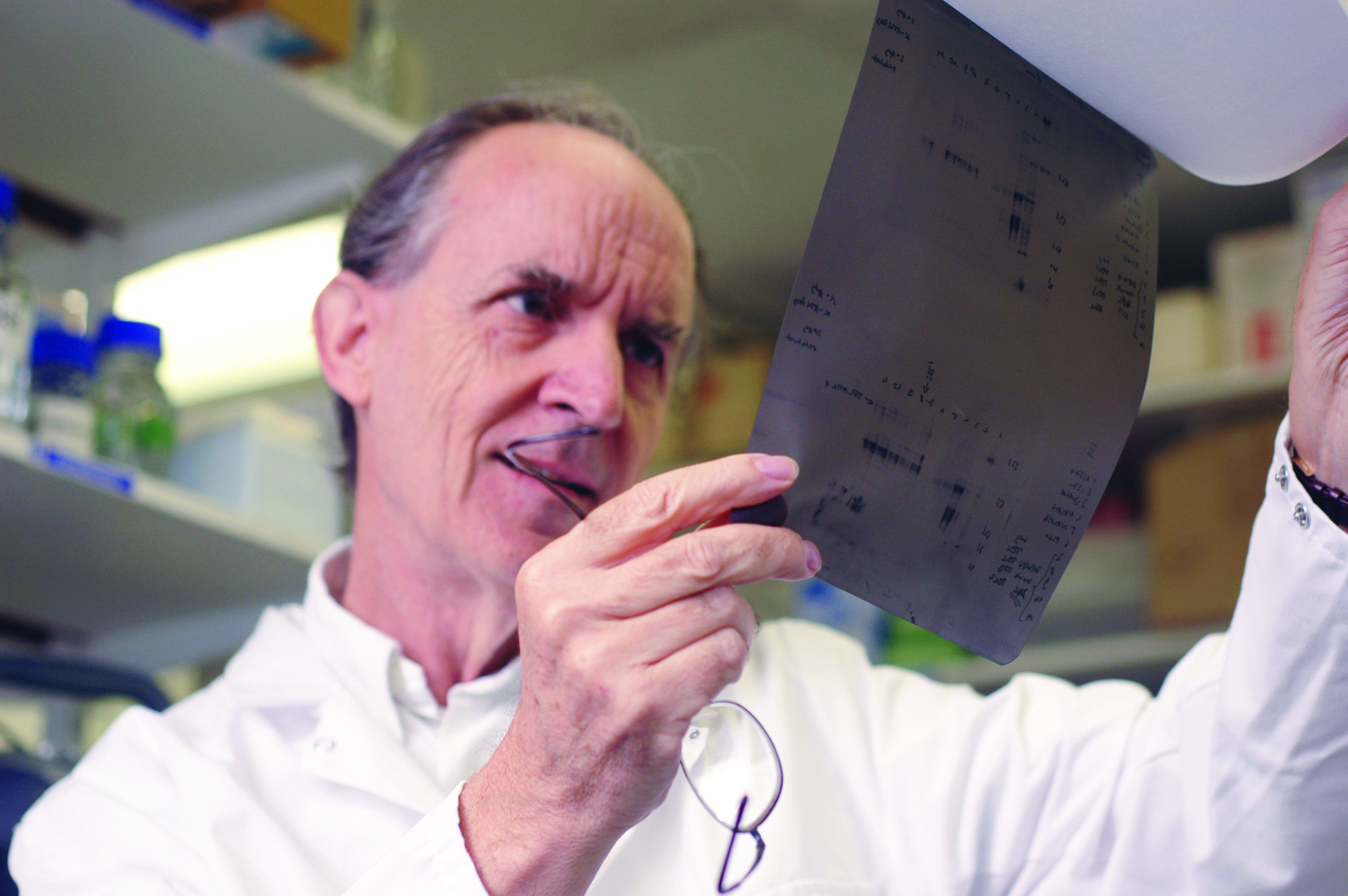News and features
Read the latest news and features about our world-leading research, discoveries, fundraising and philanthropy. If you want to keep updated on our news, you can follow us on social media or sign up for our Search newsletter.
If you’re a journalist and want to find out more, you can contact our media relations team.

Kidney cancer genetic risk discovery
Scientists at the ICR have found a new genetic variation which increases a person’s risk of developing the most common type of kidney cancer.

The ICR and Royal Marsden open groundbreaking facility bringing smart trials to the NHS
Scientists will monitor whether new-generation cancer drugs are successfully hitting their targets by simply plucking samples from patients’ eyebrows following the opening of a new world-class research facility at The Royal Marsden and its academic research partner, The Institute of Cancer Research, London.

Professor Paul Workman to join Innovation Debate 2012
Professor Paul Workman, Deputy Chief Executive and head of cancer therapeutics at The Institute of Cancer Research, London, will join the distinguished panel of world-leading experts and chairman Professor Jim Al-Khalili for The Innovation Debate 2012, taking place on 20th November at 4pm at the Royal Society in London and webcast live.

£1.2m grant to develop ICR-discovered drug
Professor Paul Workman, deputy chief executive of The Institute of Cancer Research, has welcomed the news that a drug designed and synthesised in his unit will benefit from a £1.2m grant from the UK government’s Biomedical Catalyst programme that should help speed its progress towards clinical trials.

Tackling cancer’s biggest challenge: Combination treatments offer hope to overcome drug resistance
The huge genetic diversity within tumours is threatening efforts to create personalised cancer treatments – but, as an article in Nature Biotechnology reveals, scientists at The Institute of Cancer Research in London believe powerful new technology will bring a solution.

Finding the right combination
The dream of a single pill to cure cancer, a magic bullet that stops the disease in its tracks, is one that now looks a little outdated.

Untangling the evolution of cancer
At The Institute of Cancer Research, London, Professor Mel Greaves applies evolutionary thinking to illuminate how cancers work.

BBC World highlights the future of personalised medicine in the UK
A new programme on BBC World’s The Health Show revealed how doctors in the UK are tailoring cancer treatments to individual patients using samples of their DNA.

HPC Super-Computers
The successful sequencing of the human genome in 2000 set in motion an explosion in our understanding of cancer. Some of the fruits of this research are already being incorporated into treatment and care of cancer patients, and much more is set to follow.

The Centre for Molecular Pathology
Cancers affecting a specific site are not single diseases, but rather a collection of diseases caused by alterations of distinct genes and molecular networks. Technological developments in the last decade have led to an increase in our understanding of which of these are required for cancer cells to grow and survive.

Zelboraf recommended for NHS patients
Professor Alan Ashworth, chief executive of The Institute of Cancer Research, London, comments on the announcement that vemurafenib (Zelboraf) has been recommended by NICE for NHS patients with advanced malignant melanoma and a mutated BRAF gene.

Combining imaging and gene analysis could transform breast cancer diagnosis
Scientists have developed a computer system that can automatically analyse images of breast cancer cells to look for telltale signs that the tumour will be aggressive. The technique, details of which were published this week in Science Translational Medicine, could be used to give women with breast cancer a more accurate prognosis and help tailor their treatment accordingly.
